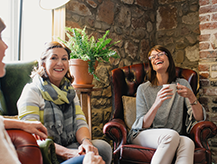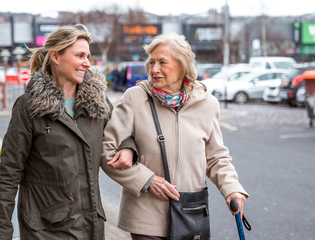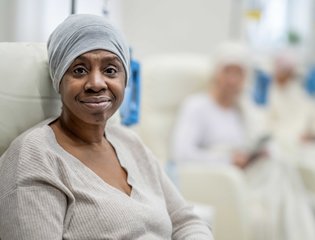Telling friends and family

Talking to family and friends about a cancer diagnosis
Telling other people you have ovarian cancer.
Feeling supported and connected to people around you can be very important when you have a diagnosis of ovarian cancer. Telling other people that you have cancer can be hard. Some people may be very understanding, others may struggle to make sense of this as they may not expect younger people to get ovarian cancer.
There is no right or wrong way to tell someone that you have cancer and it is important to do what is right for you.
You may decide that you just want to tell your close friends and family what has happened or limit the amount of information you give. You might want to wait some time before you tell anyone so you can adjust to your situation.
Tips and advice
- Decide what information you want to share with others; this might be different with different people. You don't have to tell anyone you don't want to.
- When you do share, tell them clearly what has happened to you, but remember that you don't have to tell them everything at once or give more detail than you feel comfortable with.
- If people ask you questions you don’t want to answer or don’t know how to answer it’s ok to say so.
- People often want to help, but sometimes they don’t know how to, or what they suggest is not what you need. It can be useful to let people know what support you need and when you may need it, making clear suggestions. If someone offers support that’s not so helpful, try declining politely and then let them know what would be beneficial.
- Don’t be put off by silence: they may not know what to say. Sometimes just sitting together can be more comforting than talking.
- You may want a close friend or relative by your side. If you feel nervous about telling a large number of people then you could ask a friend if they are happy to tell others on your behalf.
- Use other methods: it can feel easier to share difficult things when you are both doing something shared, like a walk or another activity; this can feel less intense than sitting face-to- face. For others it can be easier to share the news over the phone, by letter, email or social media. You can also ask someone to do this for you.
Talking to friends and family
When you tell those close to you that you have cancer they may react in different ways. They are likely to feel shocked and upset. Others may struggle with how to talk to you. You may feel under pressure to put on a brave face and stay cheerful to make the people you tell feel better. You don’t need to pretend you are fine if you are not. There is no right way to feel and you are not responsible for other people’s feelings.
“I set up a tree of communication, so my partner would only talk to a few people – and they would tell other people. Knowing my partner didn’t have to talk to everyone, because that can be wearing, was a huge relief. It was useful to take control of the little things because I had to let go of everything else.”
Other people's reactions
The people closest to you may not know how to react. If they aren’t being as sensitive as you’d like, it may be because they are feeling overwhelmed, frightened, helpless or angry, rather like you. Some people have no experience of cancer or serious illness and may not know what to say or do.
Your cancer may make others aware of their own vulnerability or bring back bad memories. These feelings can sometimes cause other people to withdraw from you, which can feel hard. Some friends won't be able to offer you support but others will.
Some people use denial to protect themselves from the worry and fear surrounding your illness. This can be frustrating, particularly in someone you are close to, as it prevents you from talking about what is on your mind. You could say that you find their way of dealing with it understandable, but difficult, and encourage them to talk. It can help to let them know that you would find it very useful to be able to share how you’re both feeling.
Take people’s help where they’re offering it and don’t feel embarrassed if someone says shall I cook you dinner, or lend you something? It’s really nice to have that support.
Your friends and family may want to talk about your diagnosis and treatment all the time. If you need a break let your friends or family know. It’s ok to say what subjects are off limits for the day and what you would like to talk about instead.
You might find that friends and family encourage you to be positive all the time and ‘fight’ your cancer. This approach, although helpful for some people at times, is hard to maintain and there will be days when you just don’t have the energy to be positive. This is understandable and it is ok to say so. Be clear with others about the language you like to use. For example, “I don’t really like to say I’m fighting cancer, I like to say I’m doing what I can day by day”.
Try to think about how your family and friends can help you in practical terms, who is good to talk to, who may be happy to cook the odd meal, run errands or help with the everyday tasks. Many will be pleased to be asked.


